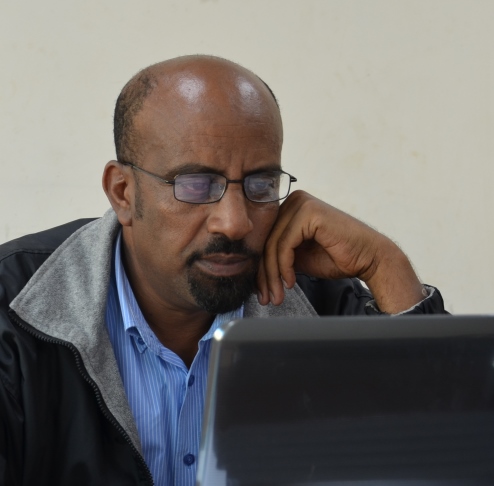AIRS hires a team of entomologists from Jimma University to study vector mosquito behavior, ecology, and species distribution.
Seven o’clock is the most dangerous time of night for residents of Tiro Afeta District in southwest Ethiopia. The sinking sun does not bring an influx of thieves or burglars, but rather a small, inconspicuous pest. It’s peak biting time for Anopheles gambiae mosquito, which is the main malaria vector in the area. But entomologists at Jimma University are about to have the upper hand on this blood sucker. For the first time in Ethiopia, a local institution will have the capacity to carry out molecular and immunologic testing of mosquitoes.
Africa Indoor Residual Spraying project (AIRS), with funding from the President’s Malaria Initiative, outfitted the laboratory at Jimma University in Ethiopia with a PCR themocycler and microplate reader. This new equipment will provide researchers with molecular and immunologic data about vector mosquitoes, enabling them to more precisely identify mosquitoes, characterize mechanisms of insecticide resistance and mosquito infection, and even identify the source of the mosquito’s blood meal. The better scientists understand mosquito behavior, the more effective malaria control programs like indoor residual spraying can be.
“No other institution in Ethiopia has the capacity to carry out molecular entomology. Previously, Ethiopian laboratories had to send samples to Kenya or Europe for molecular testing,” said Dr. Yemane Yihdego, chief of party, AIRS Ethiopia.

Abebe Asale is a PhD student at Jimma University. He’s one of the many scientists who will benefit from the new laboratory equipment donated by AIRS.
This partnership led to an opportunity to develop the institutional capacity of Jimma University. AIRS and Jimma University each sponsored one young scientist from Jimma University to attend three weeks of training at Kenya Medical Research Institute in Nairobi, the premier medical research institute in East Africa. Scientists learned to use the PCR thermocycler and microplate reader donated by AIRS.
In addition to using the molecular entomology equipment for their work with AIRS, the Jimma University scientists will be able to use the new equipment to complete their own research and to teach their students. The team of entomologists is led by Dr. Delenasaw Yewhalaw, a Belgium-trained medical entomologist at Jimma University.
“As a young college student I was inspired by one of my professors and later by a colleague to pursue a specialization in entomology and make a contribution to the fight against malaria. I hope to serve as mentor to other young researchers and scientists and I’m grateful to have new equipment that will increase our capacity to carry out entomological research,” said Dr. Delenasaw.
Entomological monitoring such as insecticide susceptibility testing is particularly important in Ethiopia because the government has been implementing indoor residual spraying with DDT for more than 50 years. The first comprehensive entomological monitoring in this country was completed in 2008 by the President’s Malaria Initiative and it revealed that mosquitoes had become resistant to DDT. In response, new insecticides were introduced. But, getting ahead of insecticide resistance requires continuous monitoring. Malaria control stakeholders depend on entomological research to develop insecticide resistance management strategies and stay a step ahead of insecticide resistance.
This story was taken from www.africairs.net

